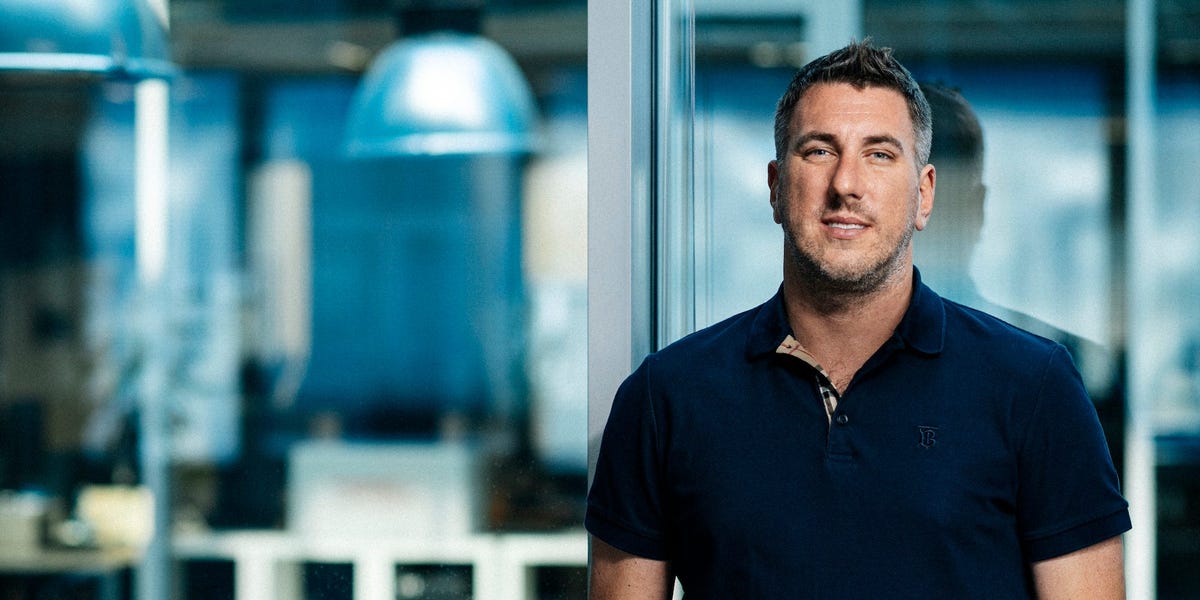Investors couldn’t get enough of grocery delivery startups during the pandemic.
Venture capitalists piled a record $5 billion into the industry in 2021, which was used to litter cities across Europe and the US with scooters racing to deliver goods to customers’ doors at pace.
But since then, the once-fledgling industry has been hammered by rising interest rates and inflation, which brought the era of cheap capital to a close and dramatically curbed consumer spending.
Getir, one of the industry’s supposed winners, had its valuation culled in a funding round in September. Meanwhile, other high-profile startups like Gorillas, Weezy, and Dija were acquired by bigger players.
All of this makes the performance of Czech startup Rohlik noteworthy.
The Prague-headquartered business has posted revenue of 700 million euros, around $759 million, for 2023. That represents a 25% year-on-year increase and a marked difference in its fortunes compared to much of the rest of the market.
Rohlik is on a pathway to profitability and has broken even in several key cities, CEO Tomas Cupr told Business Insider.
Limiting scale
Rohlik claims its focus on proving its model on a smaller scale and a radical approach to automation has seen it succeed where more rapid grocery and quick commerce players have struggled.
“The online grocery industry didn’t have the best year in 2023, but we’re still growing, which is super positive,” Cupr told BI.
“We have a few differentiators and we’ve been doing this for a long time, so initially, we perfected the model in one location so we understood in 2018 that you can be profitable at the city level with limited scale.”
Cupr said rapid delivery companies didn’t “need to be a multi-billion dollar business to break even.” He added that if a company can’t break even in one city, they can’t in multiple cities.
At least 19 grocery delivery startups were operating across Europe at the height of the market.
For many of them, the model was to raise capital and expand aggressively into new cities, hungry for customer volumes. Those companies have retreated, instead focusing on their core markets, having spent hefty sums on international growth.
“I think I was a fairly responsible leader in 2020-21; if you expanded to 20 cities, you were a hero, but my approach was a bit more cautious,” Cupr said.
“We became profitable in Czechia and Hungary before expanding to Munich while everyone was going to London and Paris.”
Cupr admitted that the company grew “faster than felt comfortable” and that it was burning money and expanding. “But we’re still here, growing, and will soon make money. I didn’t bet on the card that was free money.”
Price over convenience
Rohlik has raised $613 million, while rapid delivery players like Turkey’s Getir and Germany’s Flink have raised $1.8 billion and $1.2 billion, respectively.
“The grocery delivery market remains a challenging area in Europe. Pandemic-induced growth in the segment resulted in large amounts of funding and bloated valuations for providers,” Nalin Patel, lead EMEA private capital analyst at PitchBook, told BI.
“As a result, food delivery platforms that provide convenience rather than cost savings have had limited growth.”
Part of Rohlik’s success, according to Cupr, has been its diligence in only opening new markets after proving a model’s viability elsewhere. In addition, the company has spent vast sums on R&D as part of a program of automation that utilises AI, robotics, and complex procurement and picking networks to pack a vast assortment of products faster than humans.
Rohlik’s fulfillment centers are in close proximity to cities like Munich, Budapest, Prague, and Vienna, where orders are packed before being loaded onto small vans with 11 to 12 orders, depending on the route.
Automated packing technology at one of Rohlik’s fulfillment centers
Rohlik
“Our automation has taken a massive leap over the past 18 months and was still a promise when we were raising in 2022,” Cupr said. “We were always fully end-to-end integrated, tactically integrating our software into hardware technologies because to pack for delivery in an hour, you only have six minutes to pick goods, which requires huge parallel processing.”
Rohlik’s average basket is around $100, with users opting to do their weekly food shop using the service. Cupr acknowledges that the startup’s customers are often affluent and busy people looking for a wide assortment of products alongside convenience.
“The starting point is that this is an industry that has been misunderstood; it’s not fast delivery in Istanbul, London, or New York; this is grocery and retail,” Jan Hammer, a partner at Index Ventures and a backer of Rohlik, told BI. “This is a multi-hundred billion dollar market; people eat every day, and technology drives this addressable market.”
Rohlik last raised $231 million in Series D funding in 2022, and Cupr said the current funding environment was better as the company looks to grow further into the DACH region. “We’re not necessarily in the market yet, but we’re thinking about going as every month the company is in better shape,” he added.


